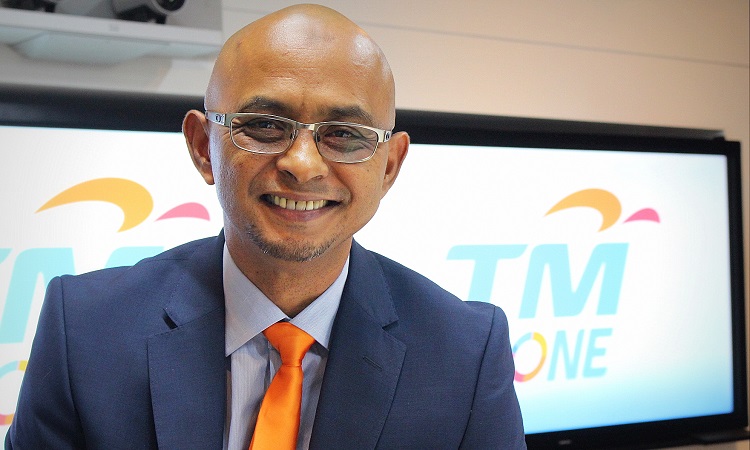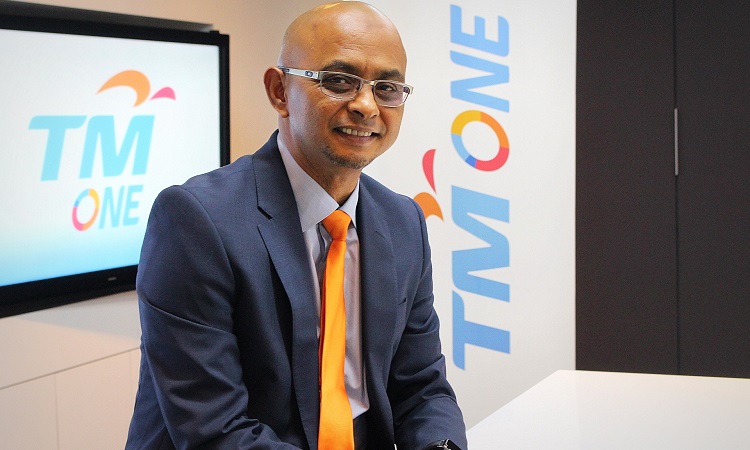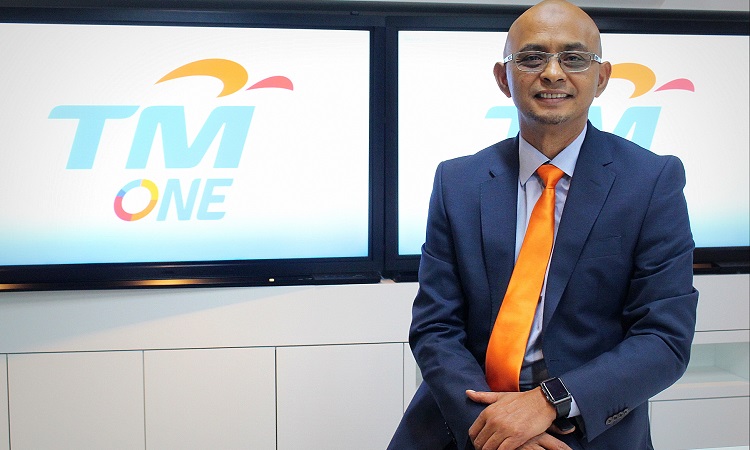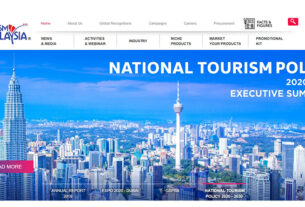Malaysia clearly sees the Digital Economy efforts as a vital growth engine as evidenced by Budget 2020 proposals as well as the recent unveiling of Shared Prosperity Vision (SPV2030).
The recent budget included increased emphasis on connectivity infrastructure with allocations such as a 5G ecosystem development grant worth RM50 million and a further RM25 million matching grant to encourage more 5G pilot projects to drive the growth of new technologies in Malaysia. broadband initiatives.
These clearly point to the fundamental role that infrastructure companies have as digital transformation enablers.
On the eve of its flagship event, the LEAP Summit 2019 (5 November 2019) at KL Convention Centre, Ahmad Taufek Omar, Chief Executive Officer of TM ONE, which is the business digital solutions arm of Telekom Malaysia (TM), agreed to a deep dive interview on Malaysia’s march forward as a Digital Nation.
Business Circle KL: What are the benefits of digital transformation for businesses?
Ahmad Taufek Omar (ATO): Nowadays, digital transformation is no longer an option for businesses. It has become a necessity for operational efficiency and business survival. From my point of view, competition between market players is getting more intense as businesses compete for share of wallets from customers who have become more discerning. With the proliferation of mobile devices, everything is at the customers’ fingertips. Customers want the latest information and immediate response on products and services instantly and at the tap of their fingers. They want the best experience and they are spoilt for choice. Only businesses who are on top of the digital intelligence will survive in this age.
Business Circle KL: In some businesses, we’re seeing something of a scattershot approach to digital transformation. How can they implement a more coherent and cohesive strategy?
ATO: I think this happens because there is so much that businesses have to do. The speed at which digitalisation is happening is revolutionary and because of this, some organisations are seeing themselves becoming irrelevant very quickly. Digitalisation was largely seen as an IT-driven and required high investment. Technology moves so fast but not all companies are able to keep up in terms of the financial capability.
Then there is culture. Digital transformation requires agility and speed. There is a saying “Culture eats strategy for breakfast.” If the culture of the organisation does not embrace agility, business leaders will find that their digital transformation strategy will falter.
Based from my experience, there are three (3) key elements for a coherent digital transformation strategy.
1) First, and this holds true for any strategy, is that it must always be customer centric. Anything that we do must be about our customers – creating the best experience for them. This applies to digitalisation as well.
2) Secondly, culture. Leaders must ensure that they have the people strategy to support the digital transformation. When everyone in the organisation is willing to move fast to enable digitalisation and to create the best customer experience, everything will fall smoothly in place.
3) The third, but not the least important, is that it must be data driven. Digitalisation and data-driven go hand-in-hand. In order to drive a digital transformation strategy, leaders must be guided by data-driven insights instead of relying on gutfeel. In the past, people rely on expert opinion. Unfortunately, today, if you can’t back your arguments with data, you are no longer a legitimate expert.
Digitalisation will generate more data and insights to guide decision making, so it’s really a complete circle. This is where TM, via TM ONE will play its role to enable Digital Malaysia.
Business Circle KL: What role can TM ONE take as an enabler?
ATO: TM ONE is the business-to-business arm fronting the enterprise and public sectors for Telekom Malaysia Berhad (TM). We are the enabler for a secured Hyperconnected Ecosystem, empowering enterprises and the public sector to realise the full potential of their digital opportunities. We fully support TM in the Group’s role as a national telecommunications infrastructure provider of Malaysia’s Digital Nation aspirations and has established the communications backbone of country with the widest connectivity and convergence network.
The TM Group, via its innovative and comprehensive products and solutions will continue to lay the foundation for Industrial Revolution 4.0 (IR4.0) and rolling out 5G nationwide – serving a more digital society and lifestyle, digital businesses and industry verticals, as well as digital Government – to enable a Digital Malaysia.
We believe in long term partnerships and customer centricity. At TM ONE, we organise ourselves around key industry verticals, with the team and industry experts who enable us to gain a deep understanding of industry needs.
We always work on a collaboration mode with our customers. Because customers are always our true north, TM ONE will continuously develop and deliver digital solutions enabled by Internet of Things (IoT), Big Data Analytics and Artificial Intelligence (AI). Through our end-to-end digital solutions, we will fulfil the dynamic needs of the various industries in today’s hyper-connected ecosystem. We emphasise on understanding their pain points, helping them to seize the digital opportunities and keep them relevant in the market.
For TM ONE, we always take the B2B2X approach. Our solutions are designed to ensure that our customers are able to serve their customers better.
Business Circle KL: Would you say that changing mindsets is the critical challenge in evolving a successful transformational journey?
Culture is a critical factor underlying a successful transformation. Mindsets form just one element within the culture. Today, it is a crucial that we ensure people’s mindsets are primed and ready for the digital journey. Companies, whether they are big or small, must be ready to change mindsets to stay relevant and to adapt to the new order of the economy. Those who are slow to transform will be left behind and see their market share eaten away by disruptors.
Following the above, what are we currently seeing with partnerships between telcos (TM ONE) and businesses (customers)?
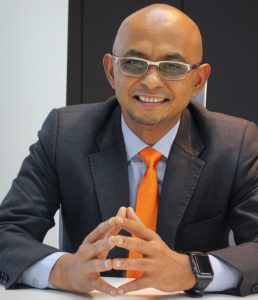 ATO: In today’s digital economy, collaboration and long term partnerships have become key. Only through collaboration, new opportunities can be discovered and unlocked through new experiences and learnings.
ATO: In today’s digital economy, collaboration and long term partnerships have become key. Only through collaboration, new opportunities can be discovered and unlocked through new experiences and learnings.
At TM ONE, we have done this successfully with our customers. Collaboration has enabled our customers to transform their business with the help of the right technology provider. I am pleased to say that the relationship between TM ONE and our customers has evolved beyond just a vendor-customer relationship.
In addition to providing our customers with smart solutions, our knowledge-sharing and capability-building with our customers in a longterm partnership has resulted in a strong traction towards the adoption of AI/IoT and Big Data Analytics recently. In fact, during the LEAP Summit, our flagship event that is taking place on 5 November in KL Convention Centre, some of our key customers will be sharing their experience on how they see collaboration propels their businesses forward.
Business Circle KL: How will Budget 2020 and Vision 2030 (SPV2030) impact digital adoption in your view?
ATO: The Government’s effort towards increasing digital adoption across the board is laudable. In the recently announced Budget 2020, the New and Digital Economy being specifically mentioned as the first thrust speaks volume of the Government’s seriousness in making Malaysia a Digital Nation, which is in line with TM’s aspiration for the country as well.
Incentives abound for all companies, whether they are startups, SMEs or large enterprises, to digitalise their operations.
As for the Shared Prosperity Vision, it could drive Malaysia to adopt more technology at a faster pace whilst creating more high-value and high-income jobs in the market. SPV2030 will galvanise growth, which is an important pillar in the Shared Prosperity.
We need to move to a more forward-looking economy with the adaptation of the technology, more skilled workers, and more professionals. At TM ONE, our role as the enabler of a digital nation is to develop the capabilities of the enterprises and public sector to transition into Industrial Revolution 4.0, in line with the objectives of Budget 2020 and SPV2030. Part of that role includes increasing the adoption of advanced technologies in Malaysia, whether it is in IoT, AI, Big Data, Blockchain or even Cybersecurity, among the businesses and our government sector.
Business Circle KL: Any other concluding thoughts you would like to share around LEAP Summit 2019?
ATO: At TM ONE, we have hosted the LEAP Summit every year since 2018 to shape a new vision and a new way of thinking for businesses particularly our customers. This year, we have chosen Creative Disruption as the theme because it is what we need to put us on a more agile, faster path … and to keep our business staying ahead. New players are disrupting the existing ways of doing business in all verticals. They are seizing market share and serving our customers’ unmet needs. Big players need to rethink about their business models, strategies, operational models and their capabilities.
With IR4.0 now happening in the trends of towards automation and data exchange in manufacturing technologies and processes, we want to challenge our audience into self-examining whether we are ready to face the change. Today, everyone must embrace creative disruption to be relevant. In this year’s LEAP, we want to share with our customers what are the successes and lessons from those who dare to be a creative disruptor. We want to share with our customers the executable insights of key takeaways, so that they can execute them in their own organisation.

